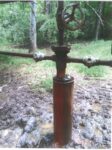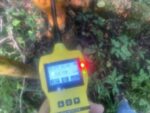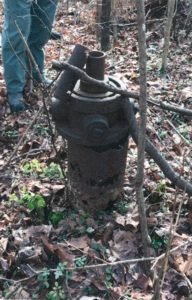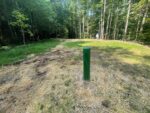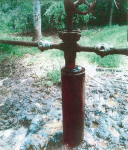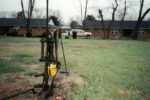- Like
- Digg
- Del
- Tumblr
- VKontakte
- Buffer
- Love This
- Odnoklassniki
- Meneame
- Blogger
- Amazon
- Yahoo Mail
- Gmail
- AOL
- Newsvine
- HackerNews
- Evernote
- MySpace
- Mail.ru
- Viadeo
- Line
- Comments
- Yummly
- SMS
- Viber
- Telegram
- Subscribe
- Skype
- Facebook Messenger
- Kakao
- LiveJournal
- Yammer
- Edgar
- Fintel
- Mix
- Instapaper
- Copy Link
One of the most widespread environmental and property rights disasters ever is now unfolding because West Virginia law allows drillers’ to use “blanket” performance bonds
For Release January 18, 2019 in conjunction with 12:00 Noon Press Conference in the Governor’s Cabinet and Conference Room, State Capitol Building, Charleston
Contact: David McMahon, WV Surface Owners’ Rights Organization, (304) 993-0468, wvdavid@wvdavid.net
(Charleston, WV) If oil and gas wells are not plugged at the end of their productive lives they can leak gas into the air; leak oil and brine out onto the ground; and leak gas, bacteria laden surface and septic runoff, plus non-potable water into good groundwater and other formations. And all of this can devalue surface owners’ property in perpetuity. (A gallery of photos of orphaned wells can be found at https://wvsoro.org/orphaned-wells/.)
Operators do not plug wells at the end of their lives even if they are losing money on the wells because it costs so much to plug them when their production has declined, and because the wells can be used to argue that old leases are being held by production. There are 12,000 wells in West Virginia that have stopped producing that drillers are already required to plug, but have not.
Because of weak laws and lax enforcement, many drillers have already gone out of business leaving more than 4,000 of those wells orphaned with no driller or responsible operator to plug them. In 2018, the State only had money to plug one orphaned well, and will only be able to plug five in 2019. The rest are still out there on the surface land of West Virginia farmers and other landowners. One bill this year may raise funds to plug 200 orphaned wells, but the big issue is preventing more from being orphaned.
At the root of the orphaned well problem are the blanket bonds that the statutes in West Virginia allow drillers to use. Each driller can post only one “blanket” “performance” bond for all of the wells that it owns.
To make matters worse, the orphaned well crisis is exploding now because EQT and other major Marcellus Shale drillers are now trying to dump their responsibility to plug 17,000 more declining vertical oil and gas wells located on surface and mineral owners across the West Virginia. They are doing this by selling the wells to a company called Diversified or to its affiliates. For Diversified and its subsidiaries the “blanket” bond amounts about $70 per well, yet it costs from $25,000 to $65,000 and more to plug each well correctly.
In one disclosure to its shareholders on a stock exchange in Great Britain, Diversified said it, “. . . expects its producing oil and gas properties to reach the end of their economic lives . . .” in 2048. In another disclosure its plugging schedule estimates that the next year, 2049, it will still have 50,000 wells to plug across Appalachia, and more than 10,000 of those will be in West Virginia. If 2048 is the expected end of the economic life of Diversified’s wells, where is the money going to come from to plug these wells? We predict those will also be orphaned.
In November, WV-SORO held a press conference to announce that it was asking the DEP for a hearing to convince DEP that it had the legal authority along with good reasons to deny the transfer of 3,000 conventional, vertical wells from EQT, which would have the money to plug them when the time came, to Diversified which we predicted above will not. The DEP denied us a hearing.
Instead the DEP entered into a consent agreement with Diversified that only guarantees that 310 of its 17,000 wells will be plugged in the next 15 years. We believe that DEP’s consent agreement has loopholes that will allow Diversified to continue to milk what gas is left for those 15 years and avoid plugging wells.
It’s time for the Legislature to act and pass legislation that requires “plugging assurance” in the form of single well “plugging” bonds or the deposit of money now for future plugging into an escrow in the State Treasurer’s office while the well is still producing. The amounts would be determined by the DEP and the Treasurer. WV-SORO will soon have this Orphan Well Prevention Act legislation introduced and push for its passage this year. Single well plugging assurance needs to be required for any well that is transferred, for every new well, and for wells that are not now producing enough gas to pay to operate themselves. We can’t wait any longer.
### END ###



